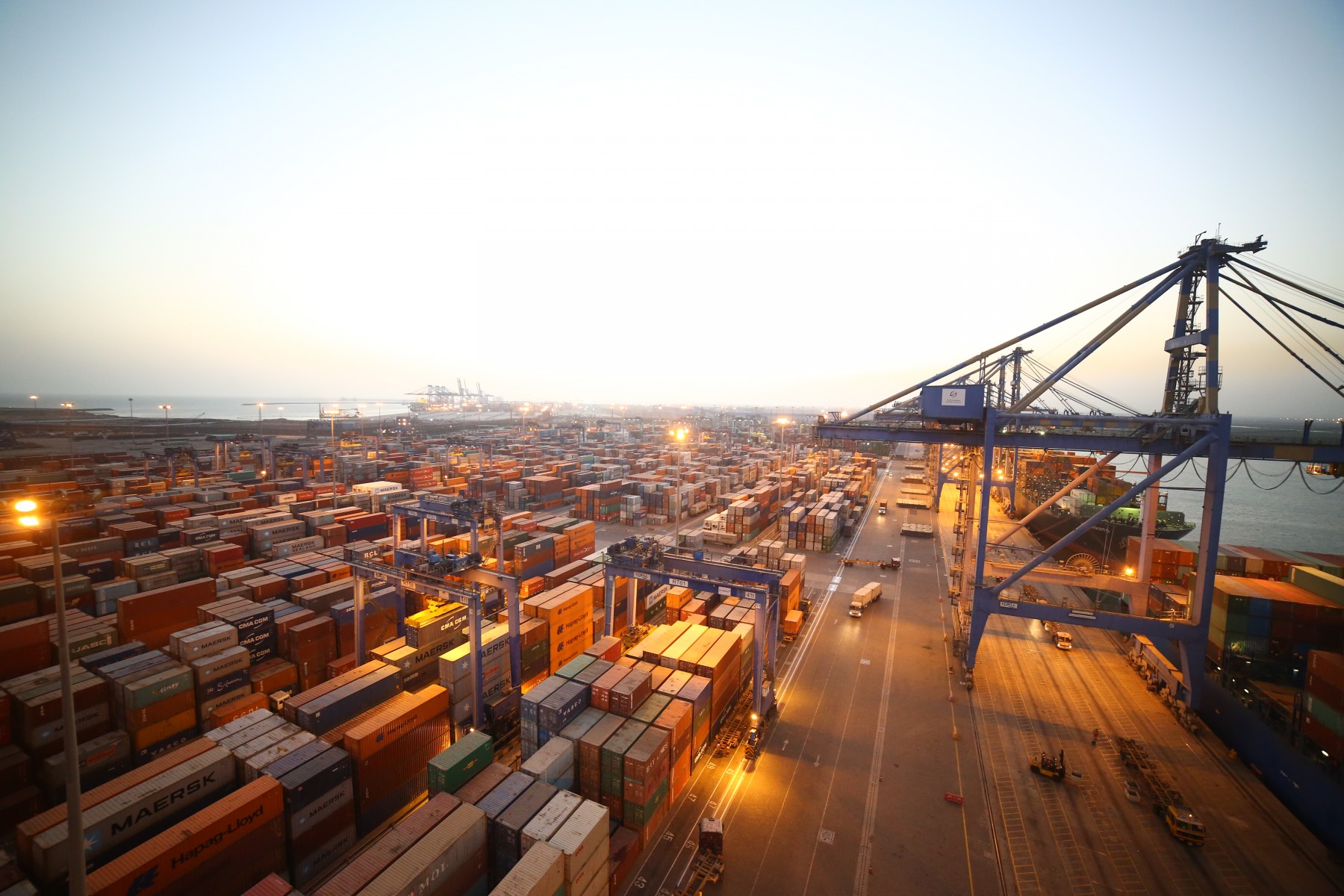
A Public Interest Litigation halts signing of concession pact with DP World for Tuna Tekra mega box terminal
GANDHIDHAM : A public interest litigation (PIL) seeking to annul the environment clearance granted to Deendayal Port Authority for building capacity expansion projects has halted the signing of a concession agreement with the Hindustan Infralog Pvt Ltd (Indian unit of Dubai’s DP World Ltd) for a mega container terminal at its satellite facility in Tuna Tekra.
Hindustan Infralog Pvt Ltd trounced India’s biggest private port operator, Adani Ports and Special Economic Zone Ltd (APSEZ), by a wide margin to win the deal in late January.
The global port operator owned by the Dubai government placed the highest royalty of Rs 6,500 for a TEU to emerge the successful bidder for the project.
APSEZ, the only other bidder to submit a price bid, quoted Rs1,500 per TEU as royalty.
The planned container terminal with a capacity to handle 2.19 million twenty-foot equivalent units (TEUs) a year will cost Rs4,243.64 crore to build from scratch.
The PIL was filed in the Gujarat High Court a few days after the tender was awarded to DP World.
“The signing of the concession agreement has been held up due to the PIL,” an official at Deendayal Port Authority said. “The court has not granted a stay on the project; we are trying to convince DP World to sign the concession agreement,” he added.
A concession agreement sets out the terms and conditions of a port contract and puts the project in motion.
Notably, the PIL was filed two years after the clearances were granted.
The Ministry of Environment, Forest and Climate Change as well as the Gujarat Coastal Zone Management Authority (GCZMA) granted environmental and coastal regulation zone (CRZ) clearances in 2016 to the port authority for seven integrated facilities within port area, and for three other facilities in 2020.
The petitioners alleged that the clearances were sought by concealing information on the presence of mangroves in the area. This was allegedly done to avoid restrictions, and the port authority as well as the GCZMA failed to exercise due diligence by verifying the presence of mangroves ahead of granting green clearance.
The PIL said that the area falls within the CRZ-1A category per CRZ notification of 2011.
But the CRZ nod was granted under CRZ-1(B), CRZ-III and CRZ-IV categories.
Challenging the clearances granted under allegedly wrong categories, the petitioners have sought to annual the approvals given by the Ministry of Environment, Forest, and Climate Change.
The PIL also sought directions from the court to the Ministry of Environment, Forest, and Climate Change and the GCZMA to consider the clearances afresh per the CRZ notification of 2011 and other applicable rules.
Deendayal Port Authority runs the country’s biggest state-owned port by volumes handled and the nation’s second largest at Kandla in Gujarat. Tuna-Tekra is a satellite facility located some 15 kms away.
The Tuna-Tekra container terminal forms a part of the National Infrastructure Pipeline of the
government.
The planned box terminal will be designed and equipped to handle ships that can carry more than 18,000 TEUs.
Initially, the terminal will have a depth of 14.5 metres without tidal restrictions. There is a provision in the tender to increase the depth to 18 metres based on mutual consensus between the two parties and on cost sharing basis.
Once constructed, the terminal will help unlock future container traffic growth in India, catering to exports and imports from Northern, Western and Central India, reducing logistics cost and enhancing efficiencies across supply chains, DP World said on 2 February after the port authority awarded the project.
“As the value chain becomes more integrated, significant growth opportunities exist across the entire Indian ports and logistics space,” Sultan Ahmed Bin Sulayem, Group Chairman and CEO of DP World said on 2 February.
“With the development of the Tuna Tekra mega-container terminal in Gujarat, DP World will be well placed to capture these opportunities, further connecting Northern, Western and Central India with global trade and driving value for all our stakeholders. This is yet another step in our collective efforts with the National Investment and Infrastructure Fund (NIIF) to leverage our expertise in logistics infrastructure and local knowledge to further strengthen India’s supply chain,” he added.
The new terminal will be constructed and equipped with most modern facilities and equipment over an area of about 63 hectares. The terminal will be connected to the hinterland through a network of roads, highways, railways, and the Dedicated Freight Corridors.
DP World already operates five marine terminals – two in Mumbai, one each in Mundra, Cochin and Chennai – with a combined capacity of some 6 million TEUs. The Tuna Tekra terminal will help DP World expand its Indian terminal capacity to 8.19 million TEUs.
DP World also runs seven multimodal inland terminals connected to its rail network, cold storage facilities and container freight stations. It is also developing three modern economic zones in Mumbai, Cochin and Chennai.

